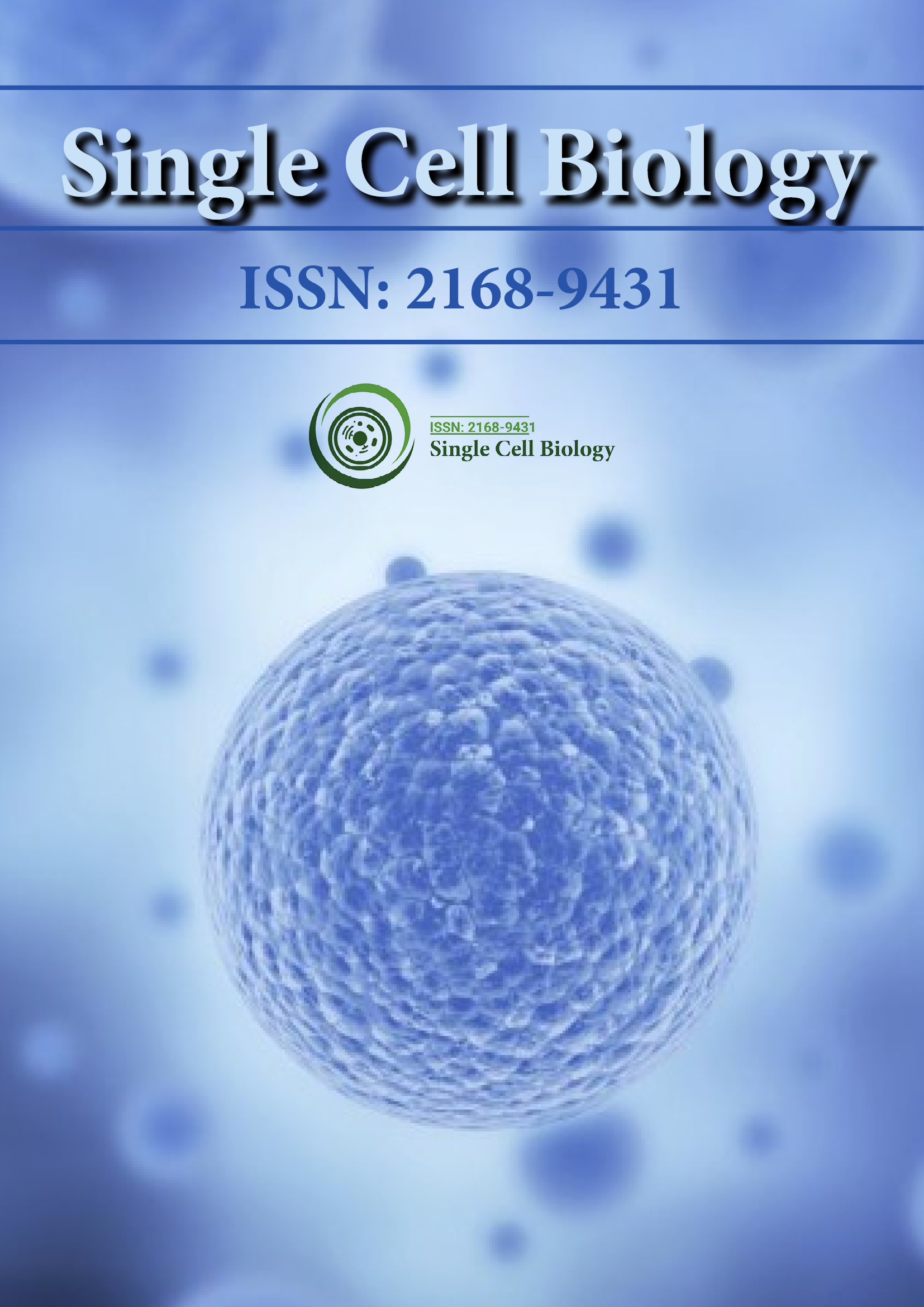Indexed In
- ResearchBible
- CiteFactor
- RefSeek
- Hamdard University
- EBSCO A-Z
- Publons
- Geneva Foundation for Medical Education and Research
- Euro Pub
- Google Scholar
Useful Links
Share This Page
Journal Flyer

Open Access Journals
- Agri and Aquaculture
- Biochemistry
- Bioinformatics & Systems Biology
- Business & Management
- Chemistry
- Clinical Sciences
- Engineering
- Food & Nutrition
- General Science
- Genetics & Molecular Biology
- Immunology & Microbiology
- Medical Sciences
- Neuroscience & Psychology
- Nursing & Health Care
- Pharmaceutical Sciences
Opinion - (2023) Volume 12, Issue 3
Single-Cell Epigenomics: The Symphony of Developmental Biology
Riley Wilson*Received: 04-Sep-2023, Manuscript No. SCPM-23-23433; Editor assigned: 07-Sep-2023, Pre QC No. SCPM-23-23433 (PQ); Reviewed: 21-Sep-2023, QC No. SCPM-23-23433; Revised: 28-Sep-2023, Manuscript No. SCPM-23-23433 (R); Published: 05-Oct-2023, DOI: 10.35248/2168-9431.23.12.064
Description
The passage from a fertilized egg to a fully formed organism is a major accomplishment in biology. Developmental biology seeks to decode the intricate choreography of events that guide this transformation. Central to these processes are epigenetic mechanisms, which control gene expression and cellular differentiation without altering the underlying DNA sequence. Epigenetic modifications, such as DNA methylation, histone modifications, and chromatin accessibility, act as the molecular switches that regulate when and where genes are turned on or off during development.
Traditionally, studies of epigenetics relied on bulk analyses of tissue samples, which provided an averaged view of epigenetic marks across a mixture of cell types. However, this approach concealed the rich diversity and dynamics of epigenetic states within individual cells. Enter single-cell epigenomics, a cuttingedge technology that allows researchers to delve into the epigenetic landscapes of single cells. In this article, we will learn about single-cell epigenomics,exploring how it has revolutionized our understanding of developmental biology.
Single-cell epigenomics technologies
Single-cell DNA methylation profiling: Single-cell DNA methylation sequencing techniques have unveiled the dynamic DNA methylation patterns that underlie cell differentiation and development. Researchers can now examine how DNA methylation changes in individual cells influence cell fate decisions and tissue-specific gene expression.
Single-cell chromatin accessibility assays: Chromatin accessibility, a key epigenetic feature, determines which regions of DNA are available for gene transcription. Single-cell chromatin accessibility assays, such as ATAC-seq (Assay for Transposase-Accessible Chromatin using Sequencing), enable researchers to identify the open and closed chromatin regions within individual cells. This information provides critical insights into the regulation of gene expression.
Single-cell histone modification profiling: Histone modifications play a pivotal role in shaping chromatin structure and gene expression. Single-cell techniques like scChIP-seq (Single-Cell Chromatin Immunoprecipitation Sequencing) allow researchers to examine the histone modification patterns in individual cells, elucidating on how epigenetic marks influence cell fate and developmental decisions.
Epigenetic regulation of cellular differentiation
Single-cell epigenomics has provided a wealth of information about how epigenetic marks drive cellular differentiation during development. It has revealed the existence of "poised" or "bivalent" chromatin states in stem cells, where genes are primed for activation or repression, allowing cells to swiftly respond to developmental cues. Understanding these epigenetic landscapes is essential for deciphering the molecular events that guide cell fate decisions.
Spatial epigenomics
Developmental processes are inherently spatial, with cells organizing themselves into specific structures and tissues. Singlecell epigenomics is increasingly being combined with spatial transcriptomics techniques to capture the spatial context of epigenetic marks within tissues. This integration offers a holistic view of how epigenetics influences tissue development and organization.
Disease and developmental epigenomics
Aberrant epigenetic regulation can lead to developmental disorders and diseases. Single-cell epigenomics has provided insights into the epigenetic changes associated with conditions such as congenital disorders, neurodevelopmental disorders, and cancer. Understanding these epigenetic alterations at the singlecell level is critical for developing targeted therapies and interventions.
Evolutionary insights
Single-cell epigenomics has also illuminated our understanding of evolutionary biology. By comparing epigenetic profiles across species or developmental stages, researchers can identify conserved and divergent epigenetic mechanisms that underlie the evolution of developmental processes.
Challenges and future scope
While single-cell epigenomics has opened new frontiers in developmental biology, it is not without challenges. The technologies are still evolving, and data analysis can be computationally intensive. Researchers are actively working to improve the scalability and accessibility of these methods while developing innovative approaches to tackle the unique challenges of studying epigenetics at the single-cell level.
Conclusion
Single-cell epigenomics has transformed our understanding of developmental biology by providing unprecedented insights into the epigenetic regulation of cellular differentiation, tissue development, and disease. As this field continues to advance, it holds the potential to reavel the epigenetic secrets that preside over life's most profound transformations. By deciphering the symphony of epigenetic marks within individual cells, researchers are resolve the conundrum of development and advancing towards new direction for regenerative medicine and disease treatment.
Citation: Wilson R (2023) Single-cell epigenomics: The symphony of developmental biology. Single Cell Biol. 12:064.
Copyright: © 2023 Wilson R. This is an open-access article distributed under the terms of the Creative Commons Attribution License, which permits unrestricted use, distribution, and reproduction in any medium, provided the original author and source are credited.
